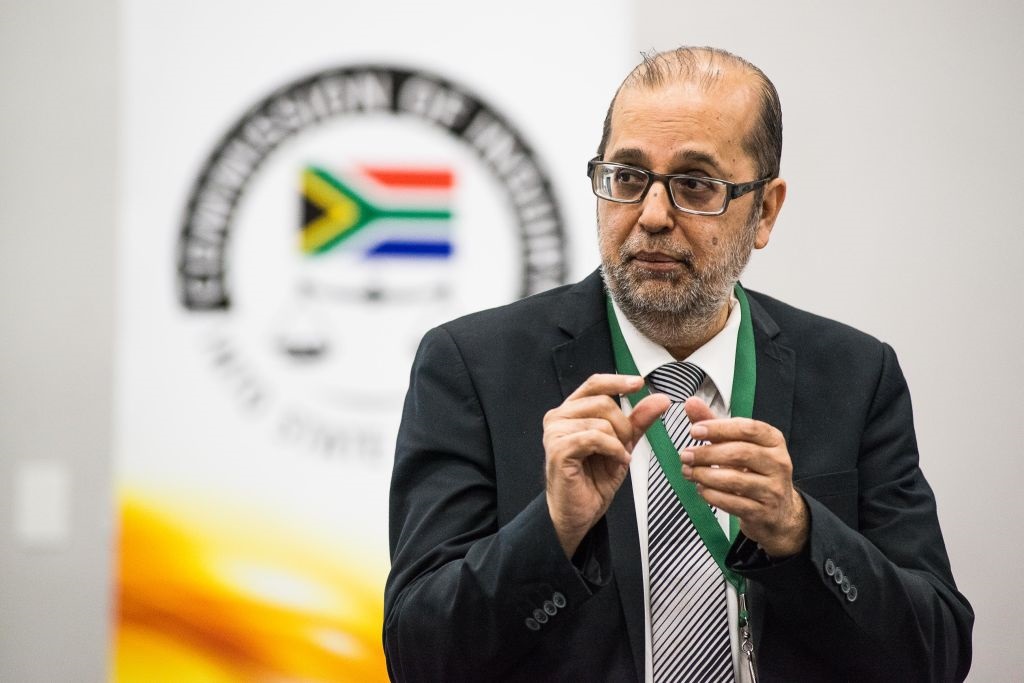
With the World Table Tennis Championships being held in eThekwini, Yunus Carrim reflects on the history of the sport in the country and how it has and can still break down barriers.
Most sports events, especially international, have some social and political significance, in that it brings people together across class, racial, cultural, ideological and other divides.
Many international sports events held in South Africa since 1994 have certainly had a broader social significance, given our history of apartheid and our international isolation from global sport. In this vein, the World Table Tennis Championships, held in eThekwini from 20 to 28 May, has an exceptional meaning.
History of table tennis in SA
Table tennis became the first sport to put the international isolation of South Africa's whites-only sports organisations on the global agenda. During the 1930s, the German Table Tennis Association banned Jews from representing Germany in international tournaments. The International Table Tennis Federation (ITTF) had to address this issue. In 1936 its constitution was amended only to accept table tennis associations "conducting the sport territory in such a way as to enable participation in it of citizens irrespective of colour, race or creed..."
It was the first international sports federation known to have such a provision. The key person behind this was Ivor Montagu, a communist, writer, film-maker and table tennis player, who helped to form the ITTF in 1926 and was its president soon after - until 1967.
In 1948 when the whites-only South African Table Tennis Union (SATTU) applied to affiliate with the ITTF, its application was summarily dismissed. Two years later, it applied again, but so did the non-racial South African Table Board (SATTB), which was formed in 1948. The SATTB was accepted. It was the only non-racial sports organisation to have an international affiliation. All the other South African sports associations with international affiliation were whites-only.
ANC President, Albert Luthuli, noted in 1956: "When a people come to the realisation of their plight and begin to fight back unitedly there is surely room for jubilation and optimism. The fight equally is being fought on every front. The fight has been won by the S.A. Table Tennis Association (Board) which has gained international recognition."
The Board was represented at the 1955 ITTF Congress. And in 1957 a five-person team from the SATTB represented the country in the World Table Tennis Championships in Sweden.
The apartheid government was furious and banned the SATTB from taking part in international tournaments by refusing its representatives passports. The SATTU was immensely frustrated that its players could not participate in international tournaments unless the SATTB consented and there were some attempts at dialogue that got nowhere.
In the 1970s the Board affiliated to the South African Council on Sport (Sacos) which campaigned for the international isolation of apartheid sports organisation around the slogan "no normal sport in an abnormal society". Anti-apartheid organisations inside and outside the country campaigned for the isolation, and one after another whites-only sports association was banned from international participation.
SA table tennis on the international stage
I happen to play table tennis (not that my friends and comrades since believe this) and later served on the executive of the SATTB, edited its newsletter, "Tabten", and was often a Board representative on Sacos.
While Sacos was very effective, some of us raised concerns that its affiliates, not least the SATTB, primarily included Indians and "coloureds", with most African sports associations being outside its folds. In 1985 a "Breaking down racial barriers" Sacos policy paper was developed by a Board representative. The paper was broadly accepted and Sacos began moving towards reaching out to African sports associations.
But progress was slow, and in 1988 an alternative federation of sports associations was formed - the National Sports Congress (NSC) that had more of a base in the African townships. While the NSC leadership was oriented towards the ANC, the Sacos leadership was oriented towards the Trotskyist Unity Movement of South Africa and the Workers Organisation for Socialist Action.
READ | Melanie Verwoerd | Quit playing games with our hearts, politicians, and get serious
Underlying the differences between the two federations were how to relate to sports organisations in the African townships and, ultimately, political orientation. This was inevitable with the heightening of the mass struggles in the 1980s and the penetration of politics into every sphere of civil society. The SATTB decided to join the NSC, as did many other sports associations.
With the unbanning of the ANC and other organisations, the SATTB and SATTU began unity talks and over 1991-1993 the Union was absorbed into the Board. That year the SATTB was represented at the WTTC in Japan by its now President Joe Carrim (not a relative) and Hajera Kajee, the secretary.
"So there we were, two raw, inexperienced officials landing at Tokyo airport, and we hadn't got off the plane when a Japanese official rushed in and called out my name and we were ushered into a major international press conference to talk about how it felt to be in international table tennis. We were completely unprepared..."
With the attention of the world on South Africa at the time, they received a fantastic reception at the championships. "We were seen as royalty, serious royalty."
ALSO READ | OPINION | Kaveel Singh: July unrest investigations plod on, going nowhere slowly
The Board's membership has grown since 1991. Of its about 8 000 members today, about 60% are Africans. In the cities, Africans are in a minority, as they are among the top ranked players in the country. "Yes, we need to do more to become more representative of the population. These world championships will contribute to that. We chose Durban as the venue mainly because of its interesting racial mix. And with the 2021 July unrest and the floods here our social cohesion goals are best served here."
The executive of the Board comprises three Africans, three "coloureds" and a white. Four are women. There is a Vice President for Transformation and Inclusion whose main goal is to make table tennis more popular in the townships.
"But we oldies must now move on in a phased transition and make way for younger people to take over the administration."
Carrim says they pushed for the world championships to be held in South Africa to "profile table tennis, to get more people, especially from the townships to get into the game". Of course, there are major challenges in getting the sport into the townships, not least the cost of the equipment, but the Board is determined to do more.
Carrim is encouraged that the top junior players come from Sekhukhune, Tzaneen and Ezakheni and the under 19 women's champion is Boipelo Mashwabi from Mangaung.
Want to discuss hotly debated topics with someone from across the world? Sign up for our global dialogue programmeand get matched for a conversation
Exhibition matches have been held recently in Umlazi, Inanda, Kwamashu, Chesterville, Tongaat and Phoenix. And the ITTF has signed an agreement with SuperSport to provide significantly more media coverage of table tennis until the end of 2024.
This is the first time that the WTTC is being held in an African country since Egypt hosted it in 1939. With 227 countries affiliated to it, the ITTF is the most representative sports federation globally. While football is the most popular sport in the world, FIFA, with 211 country affiliates, is less representative.
China, with its over 80 million players, has dominated world table tennis for decades. Interestingly, it was through table tennis that the over 20 years diplomatic and economic isolation of the US and China thawed - "ping-pong diplomacy", as it became called.
A table tennis exchange between the US and Chinese teams in Beijing in April 1971 broke the isolation and paved the way for Richard Nixon, the US President, to visit China and meet Mao Zedong.
Nixon later remarked:
Whatever the alienation between these two countries today - the complete breakdown of the past is over, and table tennis was there to play a role.
Table tennis both globally and in South Africa has a legacy of breaking down national, racial, cultural, ideological and other boundaries.
The SATTB needs to carry on this tradition and contribute more to social cohesion, especially in view of the increasing economic and racial polarisation in the country. Not an easy task, of course - but it can and must be done. And that could be the lasting value of the 2023 WTTC.
- ANC MP Carrim is a former table tennis player, served on the executive of the SATTB and was active in Sacos in the campaign for transformation in sport before 1990.
*Want to respond to the columnist? Send your letter or article to opinions@news24.com with your name and town or province. You are welcome to also send a profile picture. We encourage a diversity of voices and views in our readers' submissions and reserve the right not to publish any and all submissions received.
Disclaimer: News24 encourages freedom of speech and the expression of diverse views. The views of columnists published on News24 are therefore their own and do not necessarily represent the views of News24.




 Publications
Publications
 Partners
Partners
























